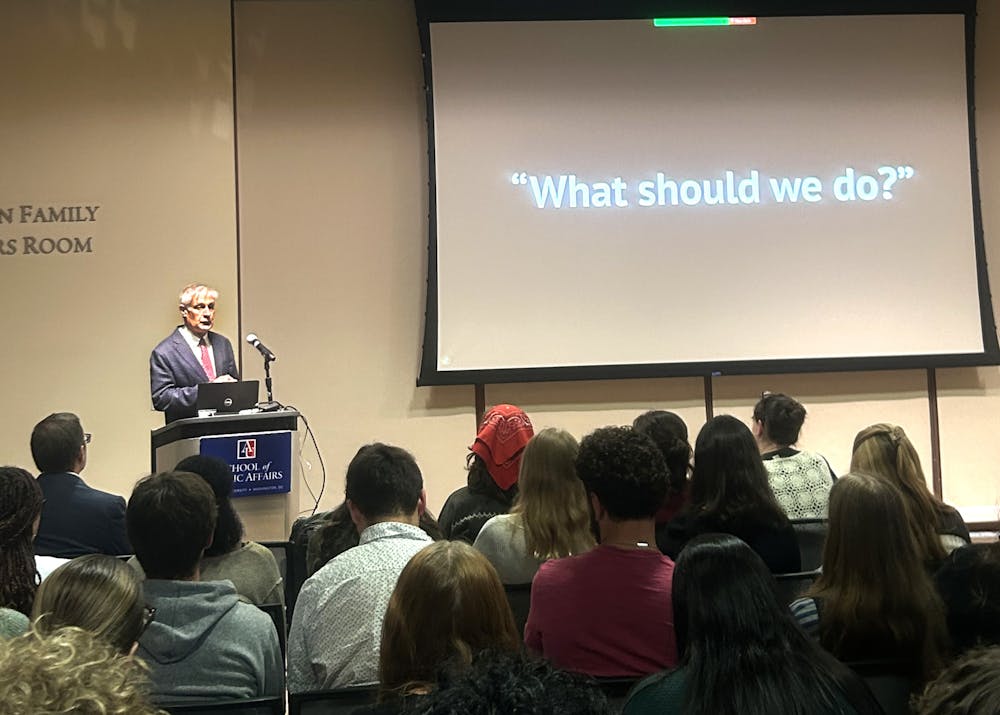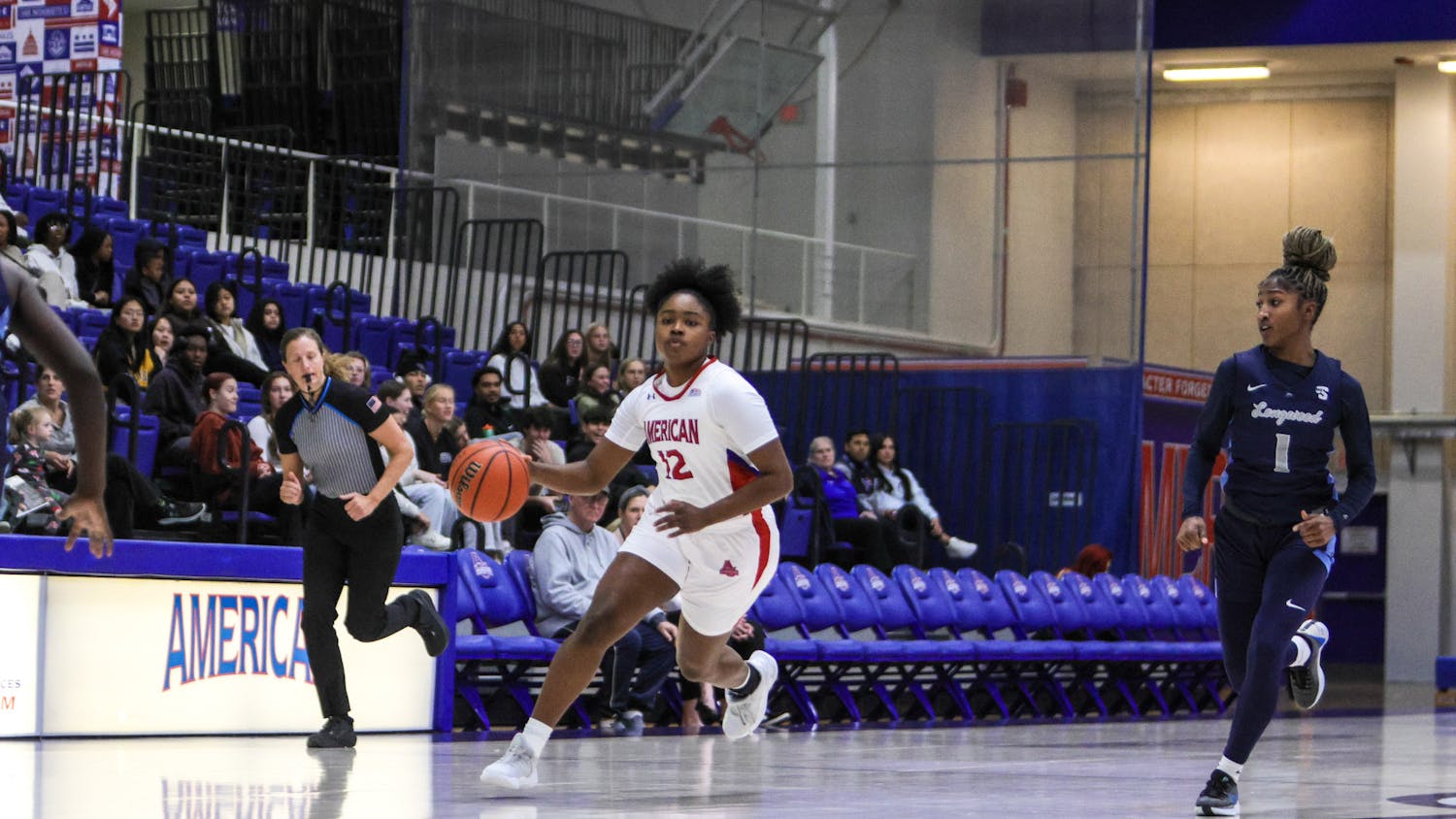The American University Lincoln Scholars Program welcomed Peter Levine, associate dean of academic affairs and Lincoln Filene professor of Citizenship & Public Affairs in Tufts University’s Tisch College of Civic Life, for its annual fall lecture on Oct. 28.
Students and faculty gathered in the School of International Studies Founders Room to explore ideas from Levine’s latest book, “What Should We Do?: A New Theory of Civic Life,” which offered reflections on the fundamental questions of civic life and strategies for effective action.
The event focused on the challenges of collective action, discourse and nonviolence, encouraging students to think critically about how to act as a community.
“Asking the question ‘What should we do?’ often becomes really hard, and that difficulty is a sign that you are thinking the way you should,” Levine said.
Levine began the lecture by breaking down the meaning of each word in the question, “What should we do?” He explained how each element contributes to the challenges of civic life—“what” calls for facts and information, “should” raises moral and ethical considerations, “we” emphasizes the need for collective action and “do” serves as the critical call to action.
Levine emphasized that participating in a civic life requires thoughtful collaboration, practical action and the ability to sustain functional groups.
“Because the world is unjust, you have to ask the question, ‘What should we do?’ Even if it’s not your fault,” Levine said.
The Lincoln Scholars Program is an interdisciplinary certificate program at AU that aims to foster “critical thinking and civic engagement.” The program aims to bring students of diverse backgrounds together to explore questions of “moral and political life in a context of intellectual and political diversity.”
The annual fall lecture is a cornerstone event for the program, aimed at promoting community and intellectual exchange, according to Thomas Merrill, director of the Lincoln Scholars Program.
“We’re always trying to find somebody who’s going to bring the community together,” Merrill said to The Eagle, adding that fostering thoughtful civic discourse is “central to the program’s mission.”
Merrill said that Levine’s ideas align with the University’s larger mission to foster civic engagement, particularly through the new Civic Life initiative. Civic engagement encourages students and community members to engage meaningfully through productive discussions, even amidst disagreements.
"We need to be more thoughtful about how we engage in civic life. That’s what we’re all trying to do," Merrill said.
Anja Herrman, a Lincoln Scholar and freshman in the School of Public Affairs, said she appreciated Levine’s ability to connect theory with practice.
“This broader theoretical perspective will help me approach civic engagement issues in a way that considers both what we should do and how we should do it,” Herrman said to The Eagle. “The ability to learn the principles of engagement is really fundamental to meaningful change.”
Levine concluded the lecture by emphasizing the importance of continuous civic engagement. He encouraged students to recognize that disagreements are inevitable but valuable.
“We disagree because we care, and we need to do it better,” Levine said.
He ended with a call to action, reminding attendees that civic life extends beyond national politics and requires thoughtful collaboration.
“In conversation, we can move towards greater wisdom,” Levine said. “We communities are capable of changing the rules.”
This article was edited by Payton Anderson, Tyler Davis and Abigail Turner. Copy editing done by Luna Jinks.





